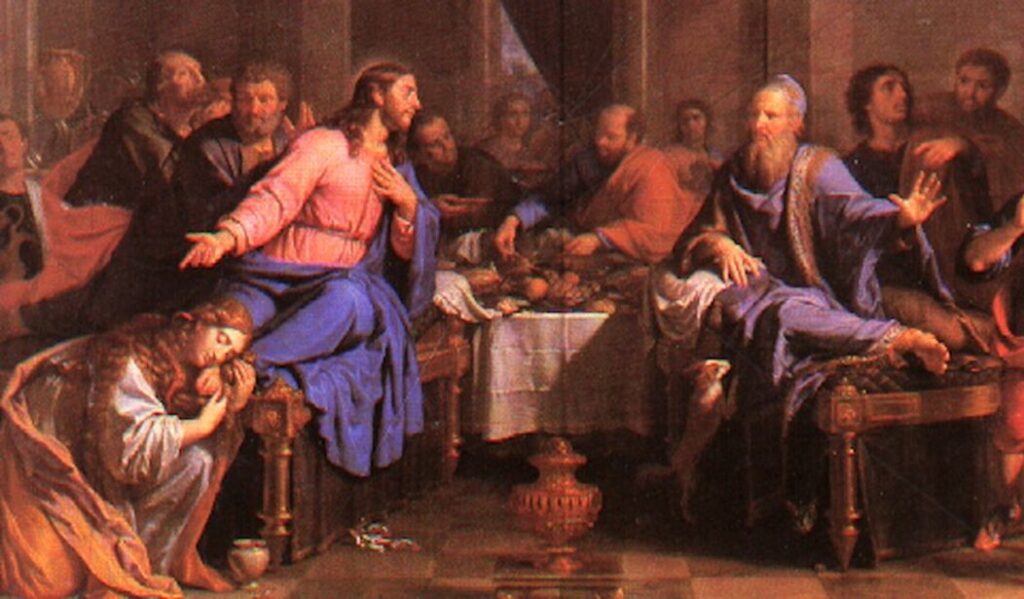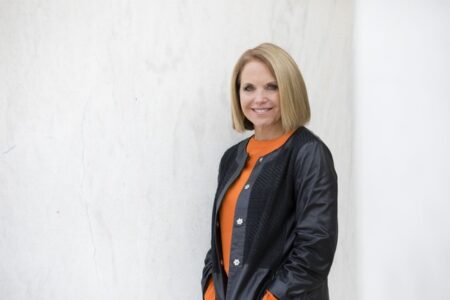This morning’s Gospel reading is Matthew 10:26–33:
Jesus said to the Twelve:
“Fear no one. Nothing is concealed that will not be revealed, nor secret that will not be known. What I say to you in the darkness, speak in the light; what you hear whispered, proclaim on the housetops. And do not be afraid of those who kill the body but cannot kill the soul; rather, be afraid of the one who can destroy both soul and body in Gehenna. Are not two sparrows sold for a small coin? Yet not one of them falls to the ground without your Father’s knowledge. Even all the hairs of your head are counted. So do not be afraid; you are worth more than many sparrows. Everyone who acknowledges me before others I will acknowledge before my heavenly Father. But whoever denies me before others, I will deny before my heavenly Father.”
Quite a few years ago, Albert Brooks starred in a witty comedy called Defending Your Life that I caught in the theaters, and later ad nauseam on cable TV. The film offered Brooks’ musing on the meaning of life and the way to judge it, with a weird kind of reincarnation motif as a humorous context rather than as a belief system. (It had a hilarious cameo by Shirley MacLaine, in fact.)
If the motif was reincarnation, the theme was fear and courage. Brooks’ character had to go on trial to defend himself against the accusation that fear had run his life and prevented him from being the fully human person he was meant to be. As a comedian, one can certainly understand why Brooks focused on fear — and not so much as a failing in itself, but in the lack of resolve to face and overcome those fears.
It’s one of Brooks’ better films, in part because it offers a universal look at a very ubiquitous human question. Do we let fear control us and keep us from doing the right thing? And if we fear, what does that say about what we value?
One measure of the ubiquity of this issue is the Bible itself. It is chock-full of fears by the people whose stories are told in it. We have innumerable instances of this just in the Gospels; the season 3 finale of The Chosen depicts the storm on the sea of Galilee and the fright of the disciples in the boat, for instance. The word “fear” appears hundreds if not thousands of times in the Bible, in one form or another.
The only positive mentions of “fear” in the scriptures, though, relate to the “fear” of the Lord. In that sense, “fear” relates to a rational recognition of the relationship between the Creator and the created. It can be exchanged by the word “awe” and describes the same phenomenon: a realization of the vastness of God’s power and authority. It was that sense of “fear” that led the Hebrew midwives to defy Pharaoh in Exodus and allow the male children of their people to live, a practice that eventually produced Moses and the nation of Israel to come forth from Egypt.
This story puts fear in its proper context for Jesus’ teaching, as does our first reading from Jeremiah 20. Jeremiah prophesied both the sacking of Jerusalem and its eventual rebirth, but that had made him unpopular among the Judeans, who were convinced that the Lord would never let the Temple fall no matter how much they defied Him. Jeremiah’s contemporaries wanted him out of the way and plotted against him, which no doubt would have worried anyone else and perhaps cowed them into silence.
Jeremiah trusted in the Lord, however, and persevered:
But the LORD is with me, like a mighty champion: my persecutors will stumble, they will not triumph. In their failure they will be put to utter shame, to lasting, unforgettable confusion. O LORD of hosts, you who test the just, who probe mind and heart, let me witness the vengeance you take on them, for to you I have entrusted my cause.
Jesus teaches the same, but goes further and drills down to the heart of fear. What exactly is the value on which fear is based? Or to put in more practical terms, as Jesus does here, what do you choose — comfort in this life or paradise in the next? “Do not be afraid of those who kill the body but cannot kill the soul,” Jesus teaches. “Rather, be afraid of those who can destroy both body and soul in Gehenna.”
This world and our physical bodies in it will all pass, one way or the other. What matters is whether we choose ourselves or God. The Hebrew midwives certainly understood that choice in ancient Egypt and likely feared the consequences of defying Pharaoh, but they chose to trust and serve the Lord. Jeremiah knew the catastrophe to come and knew that his continued attempts to call the Judeans back to the Lord put him in danger, but Jeremiah chose to trust the Lord over the momentary comfort that acquiescing to his friends might bring.
This is what Jesus teaches his disciples in today’s Gospel too, and teaches us as well. The comforts of this world are temporary, and even those can prove deadly in practice. They cannot be trusted, nor can those who threaten the people of the Lord from His work. Faith begins with the recognition of the power and authority of God and then requires us to put our trust in it — that Jesus wants the best for us in eternity, even if it doesn’t necessarily comport with an easy life in this world.
We must do difficult tasks in His service, and those tasks may have costs. Jesus promises, though, that the reward in eternity far outstrips those costs, and so we should fear no one and live the fully human lives that God has always intended — fully human and connected to Him as our Father and Lord, who loves us so much that He sent His only Son to pay the costs for our fears and transgressions.
Addendum: Here’s a brief scene from Defending Your Life that sets up the rest of the film. Don’t watch it for the pseudotheology, but for the laughs and Brook’s insight into fear. It has one of the best lines in the movie: ‘When you use more than five percent of your brain,” Rip Torn quips, “you don’t want to be on Earth.”
The front-page image is a detail from “The Meal at Simon’s” by Philippe de Champaigne, 1656. On display at the Nantes Museum of Arts. Via Wikimedia Commons.
“Sunday Reflection” is a regular feature, looking at the specific readings used in today’s Mass in Catholic parishes around the world. The reflection represents only my own point of view, intended to help prepare myself for the Lord’s day and perhaps spark a meaningful discussion. Previous Sunday Reflections from the main page can be found here.
Read the full article here













